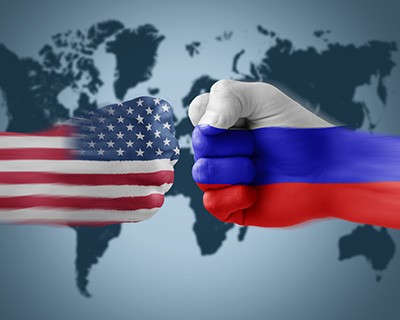For 32-years a treaty has been in place with the intention of limiting two of the most powerful countries in the world with their intermediate range weapons. However, American politicians have claimed that throughout the treaty, Russia has continued to violate the terms of the deal with no consequence. But recently, President Trump announced that the US will withdraw from the nuclear-weapons treaty, triggering a 6-month expiration period that both parties could—in theory—spend negotiating to save the arrangement.
So, does President Donald Trump have an ulterior motive in scrapping the treaty? And what are the chances of Putin and Trump re-negotiating a deal within the six-month window? The effects of these questions are priceless to debate on—and they largely speak of Trump’s miscarried attempts on international affairs.
Demystifying Trump’s negotiation techniques
First, it is utmost important to understand Trump’s negotiation techniques since the time of his Presidentship. So far, his persistent problems with China, North Korea, Russia, and the majority of Europe is quite evident. Implying a nuclear war could be possible with North Korea because of his successive outbursts, such as “My [nuclear weapon] button is bigger than yours” and calling leader, Kim Jong Un a “little rocket man” we know that Trump has an aggressive form of negotiating.
In fact, it’s a well-trodden technique known as the ‘mad man’ approach, also used by President Nixon in the 1960’s and 1970’s, which is aimed at emphasising (or over-emphasising in this context) an initial stance, to help pave the way for a lesser, but related, demand.
And is it effective? That depends on where you sit politically, but, in the case of North Korea, it has arguably helped him to become the first US President to meet the country’s head of state.
A new treaty?
Trump’s threat that if a new treaty isn’t negotiated, America will out spend and out innovate other countries is arguably designed to frighten Russia and other countries, like China, into negotiating a new treaty before the six-month withdrawal period. Whether he intends to carry out his threat or not, this stands as a classic case of leverage—or an implied leverage—aimed at giving Trump one upmanship with him having to necessarily follow through.
Following this thought if Trump’s main aim is to open talks with Russia and China to create a new treaty that all countries will abide to—and result in a series of consequences if disturbed—then we can expect to see America bring great incentives to the table in the interest of all parties. This could include a shared security intelligence or even an allied relationship.
Keys to a successful negotiation
Just like many of his manoeuvres, this approach is undoubtedly risky, especially when dealing with a similar ‘strong man’ counterpart like Putin. In business—and in the wider political sense—effective negotiation is about reaching a compromise and securing a win-win for both parties. However with Russia refusing to stop its missiles manufacture, it doesn’t exactly lay the most productive foundations for negotiation.
To effectively move forward the key thing would be for both Trump and Putin to reconsider their approach toward negotiation and head back to the original treaty as a starting point. It is vital to ensure that their language and verbal behaviour from here on remains nuanced, open and flexible in order to create a positive climate for a successful negotiation. Trump, in particular, should be acutely aware that Russia can be expected to play ‘dirty negotiation tricks’ from the beginning, such as in delaying negotiation talks until the very end of the treaty—so America would be more willing to concede on points with a looming deadline.
Trump’s next steps
Trump has said that America is willing to negotiate a new treaty. With this, the next step is to get Russia and other major countries, like China, to the table swiftly. There is only six months left until the current treaty will be abandoned and both countries will make weapons with no consequences. This calls for an urgency talk to prevent a global arms race. To be able to implement a new treaty in time, the next few weeks will be vital—in terms of offering insights into what the other countries’ stances might be while considering a new treaty. More importantly, this could encourage Trump to increase pressure on countries by effectively selling the benefits of joining a treaty and promoting the consequences of not having one in place.
This will be a new development, considering Trump will have to remain reserved on many accounts. These negotiations will be built on a diplomatic and strategic approach. Whether this will happen or not—only time will tell—but for Trump and the global politics, the repercussions of getting it wrong could be devastating.

